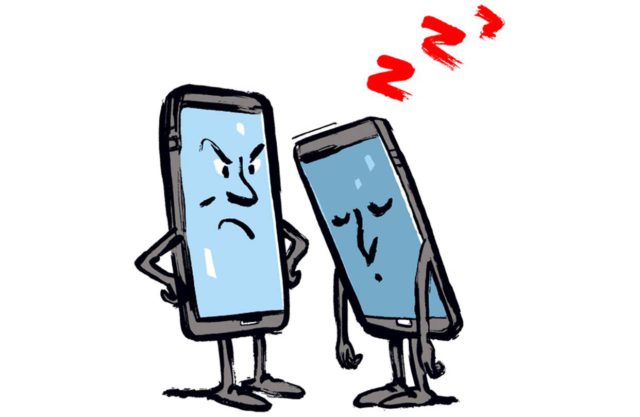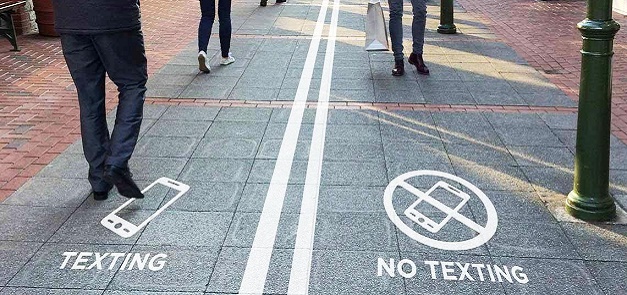Deliberately switched off the phone as a clear mockery.

Tell me if you got into such a situation. You are late for lunch and cannot find a piece of paper with the name of the restaurant or know the address but do not know how to get there. And you call a friend with whom you agreed to have lunch. No answer. You call again. No answer. You write to him. Twenty, thirty messages. No answer, no lunch. After a few hours, a week or a month, your friend tries to apologize and stupidly excuses himself: “Sorry, I turned off the phone.”
Why do people carry a disconnected phone with them? Do they unbuckle their belt in the morning and then, in surprise, discover that their pants do not hold? Do they do the same with boots, gloves, socks and handkerchiefs? Do they turn off their landline phone at night? Do they apologize for the spoiled meat under the pretext of turning off the refrigerator? Are they missing their lunch because they forgot to load their plug? Or maybe they say something in the style: 'Sorry, I did not manage to hear your marriage proposal, I switched my ears to air mode'?
People who habitually walk around with their phones turned off are a strange subspecies of postmodern Luddite. They reluctantly bring new technologies into their lives, but refuse to use them. They buy a gun, but load it with good old arrows or poisoned darts. They use only one Chinese wand, considering this fashionable and disruptive technology just a passing fad.
This behavior is infuriating. So is the submarine commander who refuses to give the order to dive, or the plane pilot who takes three days to travel from Boston to Los Angeles, as he prefers a taxi. It's like playing an acoustic concert on an electric guitar. I understand when timid people turn off their phones in the theater for fear of ringing, or at a funeral, it's normal. But phones have a special mode – silent. And yes, you can always put on vibration. If you know that the one with whom you have agreed to have lunch may linger in traffic jams or will have to abandon this idea altogether, then what makes you turn off your phone?
Maybe turn off the brain at the same time?
It's perfectly okay to set aside one day a week for digital detox, blackout for 24 hours from modern technology. But you can't do that on the day we agreed to meet at Buckingham Palace or in the middle of the Disney amusement park. Especially if we haven't seen each other since school and I may not remember what you look like.
There is something furiously asocial about neglecting new gadgets. This behavior harms the economy and drives everyone to white heat. It makes people wonder what will happen if they can't get through to you in an emergency.
This is why we (the rest) need to fight back and make such people feel their behavior for themselves. Here are some options:
- Leave a message like 'You won $ 62 million in the lottery. Please call back within 30 minutes to claim your prize. '
- Send SMS with the following content: 'Hello. This is Warren Buffett. I consider it my civic duty to help a random citizen enrich himself, and just then I came across your number. I'm only in town for an hour. Shall we have lunch? '
- Block a friend's number. When he complains to you about this at the next meeting, then say: 'I am not friends with smartphones. Probably pressed the wrong button. I'm sorry … '.
Original material by Joe Quinan.
If we omit the emotionality of the presented tirade, then you can get a rather curious and, probably, with a certain frequency, a scenario that occurs: a person buys for himself a smartphone / tablet, if not a top-end one, preferring to keep it turned off or with the sound turned off. Perhaps there is a 'herd' feeling and a desire to be like everyone else, but the reluctance to use the key functions of the gadget seems to be the most irrational. Luddites as a class have a right to exist, but why is this hypocrisy when you realize that a gadget intended for socialization or at least some interaction with the user is unnecessary, but, again, you deliberately buy it?

The economic aspect mentioned by the author is not in the foreground, there is an emphasis on social relations. This is not even from the series of 'messages or calls', here it is a matter of unwillingness to even ask what such an important person could be interested in the caller. There is still no understanding why people give out their numbers and contacts, subsequently not reacting in any way to attempts to contact them. Fortunately, there are fewer and fewer of these lately. Probably, in this regard, between the lines, there is a kind of sarcasm regarding people with gadget mania who live an active digital life, forgetting about the real one. Modern society does not experience a lack of them. Unfortunately or fortunately?
